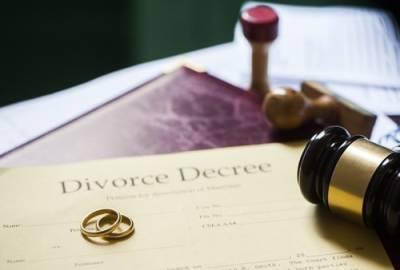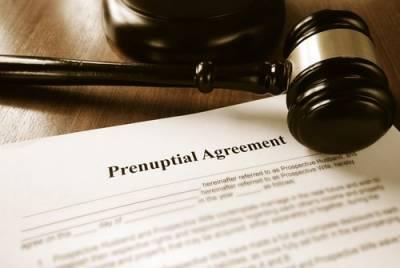Recent Blog Posts
Obtaining a Business Valuation in a High Net Worth Divorce
 Dissolving a marriage is complicated and often has the potential of becoming an emotional and difficult process. Those risks tend to be especially high for those who are involved in a high asset divorce and own unique assets, such as a business, as they could be required to sell the company, or buy out their soon to be ex-spouse’s interest, both of which could cause significant financial strain. Obtaining an accurate business valuation is critical to ensuring that any property settlement entered into by a couple is fair, so if you or your spouse own a business and are considering divorce, it is critical to speak with an experienced high asset divorce attorney who can ensure that your assets are properly appraised.
Dissolving a marriage is complicated and often has the potential of becoming an emotional and difficult process. Those risks tend to be especially high for those who are involved in a high asset divorce and own unique assets, such as a business, as they could be required to sell the company, or buy out their soon to be ex-spouse’s interest, both of which could cause significant financial strain. Obtaining an accurate business valuation is critical to ensuring that any property settlement entered into by a couple is fair, so if you or your spouse own a business and are considering divorce, it is critical to speak with an experienced high asset divorce attorney who can ensure that your assets are properly appraised.
Determining a Company’s Value
Hiring an expert in business appraisals is critical when it comes to placing a value on a company. This type of appraisal is complicated, as it requires a prediction of the potential future value of the company, as well as its past and current value. During this analysis, business appraisers will take a number of factors into account, including the company’s:
Proving that Your Spouse Lied When Disclosing Debts and Assets
 During a divorce, spouses are required to disclose detailed information about their income, assets, and debts. This ensures that both parties are able to make informed decisions during the property division process and that any settlement or court order incorporates accurate information about all known financial factors. While many divorcing spouses are careful to provide accurate and detailed financial records to each other, it is also not uncommon for one spouse to attempt to lie about assets or debts in an effort to retain the entire interest in an asset or to force a spouse to pay more than his or her fair share of a debt. This type of conduct is strictly prohibited under state law, so if you believe that your spouse is attempting to hide assets or liabilities, it is important to contact an experienced high asset divorce attorney who can ensure that your interests are protected.
During a divorce, spouses are required to disclose detailed information about their income, assets, and debts. This ensures that both parties are able to make informed decisions during the property division process and that any settlement or court order incorporates accurate information about all known financial factors. While many divorcing spouses are careful to provide accurate and detailed financial records to each other, it is also not uncommon for one spouse to attempt to lie about assets or debts in an effort to retain the entire interest in an asset or to force a spouse to pay more than his or her fair share of a debt. This type of conduct is strictly prohibited under state law, so if you believe that your spouse is attempting to hide assets or liabilities, it is important to contact an experienced high asset divorce attorney who can ensure that your interests are protected.
Improper Disclosures
Business Owners and Prenuptial Agreements
 Although prenuptial agreements are not something that business owners typically think about when they become romantically involved with another person, the reality is that making these types of considerations is extremely important for those who are considering marriage. Entering into this type of contract before a marriage takes place can give both parties peace of mind, while also ensuring that a company’s assets are protected in the event of divorce. For help drafting or enforcing your own prenuptial agreement, please contact an experienced high asset divorce attorney who can assist you.
Although prenuptial agreements are not something that business owners typically think about when they become romantically involved with another person, the reality is that making these types of considerations is extremely important for those who are considering marriage. Entering into this type of contract before a marriage takes place can give both parties peace of mind, while also ensuring that a company’s assets are protected in the event of divorce. For help drafting or enforcing your own prenuptial agreement, please contact an experienced high asset divorce attorney who can assist you.
Owning a Business Prior to Marriage
If a person owns a business going into a marriage, then those assets will most likely fall under the category of separate property in the event of divorce. However, any growth in value and earnings stemming from the business can and probably will be considered community property, which means that if a couple decides to divorce, the original business owner would need to split those earnings down the middle. Furthermore, if the spouse who didn’t originally own the business ended up substantially contributing to it during the marriage, then that business interest could be considered commingled with the couple’s community property and so converted into marital property for the purpose of division upon divorce.
Is My Pension Considered Marital Property?
 During Texas divorces, a couple’s marital property is subject to division. In most cases, this means that divorcing spouses must grapple with who will retain a variety of assets ranging from houses and vehicles to financial assets, such as bank accounts and pensions. Of these types of assets, financial property is often the most difficult to divide. This is especially true for pensions, the status of which depends on when the pension was acquired and whether a pre-existing agreement is in place. For help determining whether your own pension qualifies as marital property and whether you can expect a portion of those payments upon divorce, please contact a member of our high asset divorce legal team today.
During Texas divorces, a couple’s marital property is subject to division. In most cases, this means that divorcing spouses must grapple with who will retain a variety of assets ranging from houses and vehicles to financial assets, such as bank accounts and pensions. Of these types of assets, financial property is often the most difficult to divide. This is especially true for pensions, the status of which depends on when the pension was acquired and whether a pre-existing agreement is in place. For help determining whether your own pension qualifies as marital property and whether you can expect a portion of those payments upon divorce, please contact a member of our high asset divorce legal team today.
Community Property States
Texas is one of only nine community property jurisdictions, which means that almost all assets acquired by a couple during their marriage are considered to belong equally to both parties if they later decide to divorce. The assumption in most cases is that these assets will be divided 50/50 between the parties. This rule applies to physical property, such as real estate and personal possessions, as well as financial assets like retirement accounts and pensions.
Dividing Vacation Properties
 Divorcing couples with unique, diverse, or especially valuable assets face a host of unique issues. For instance, many high asset divorces require couples to decide the fate of multiple properties, including not only the family home but also vacation homes and investment properties. This can be a complicated process, so if you are going through a divorce and have been unable to come to an agreement about who will retain ownership of one or more vacation properties, it is important to contact an experienced high asset divorce attorney who will aggressively represent your interests, whether during negotiations or in the courtroom.
Divorcing couples with unique, diverse, or especially valuable assets face a host of unique issues. For instance, many high asset divorces require couples to decide the fate of multiple properties, including not only the family home but also vacation homes and investment properties. This can be a complicated process, so if you are going through a divorce and have been unable to come to an agreement about who will retain ownership of one or more vacation properties, it is important to contact an experienced high asset divorce attorney who will aggressively represent your interests, whether during negotiations or in the courtroom.
How Are Assets Categorized During Divorce in Texas?
Texas is a community property state, which means that only assets that were acquired during a marriage must be divided in the event of divorce. When it comes to real estate, this is true regardless of whose name is on a title or deed. Unlike community assets, separate property is any property that was owned by either spouse before the marriage took place. The only exceptions to these rule apply in cases of inheritance, in which case, a person’s assets can be considered separate property even if they were acquired during the marriage.
Mistakes to Avoid in Your High Asset Divorce
 There is a lot at stake for any couple going through a divorce. This is especially true for those who own significant or diverse assets, so if you want to ensure that your own divorce goes as smoothly as possible, you should strongly consider contacting a Leander high asset divorce attorney who can ensure that your filings and disclosures are all made properly and on time.
There is a lot at stake for any couple going through a divorce. This is especially true for those who own significant or diverse assets, so if you want to ensure that your own divorce goes as smoothly as possible, you should strongly consider contacting a Leander high asset divorce attorney who can ensure that your filings and disclosures are all made properly and on time.
Hiding Assets
One of the worst mistakes that a person can make when going through a high asset divorce is to try and hide assets from one’s spouse. Not only could this type of conduct lead to an unfair property settlement, but if a court discovers that one of the parties was dishonest when disclosing their financial holdings and debts, it could hold that individual in contempt or require that he or she turn over a larger portion of assets to the other party.
Failing to Fully Investigate Assets
Could My Business Partner’s Divorce Jeopardize Our Company?
 While there are a number of benefits to going into business with other partners, there are also a few drawbacks. For instance, if one partner’s marriage ends, the interests of any other business partners could also be at risk. This is because Texas law requires all divorcing couples to divide their marital property, which includes business assets, equitably. When this happens, the business partner’s ex-spouse could become a shareholder in the business as well, which means that he or she could have a say in how the company operates. Fortunately, there are ways to prevent this type of division, so if you have ownership in a business and are dissolving your marriage, or one of your business partners has filed for divorce, please contact our high asset divorce legal team to learn more about your options.
While there are a number of benefits to going into business with other partners, there are also a few drawbacks. For instance, if one partner’s marriage ends, the interests of any other business partners could also be at risk. This is because Texas law requires all divorcing couples to divide their marital property, which includes business assets, equitably. When this happens, the business partner’s ex-spouse could become a shareholder in the business as well, which means that he or she could have a say in how the company operates. Fortunately, there are ways to prevent this type of division, so if you have ownership in a business and are dissolving your marriage, or one of your business partners has filed for divorce, please contact our high asset divorce legal team to learn more about your options.
How to Protect Your Business Interests During Divorce
A business partner’s divorce can have important implications for the ownership interests of other partners and shareholders, so it is important for those who own an interest in a business to take certain steps to prevent disruption. For instance, including a contingency for divorce in a business’ ownership, partnership, or shareholder agreement is one of the best ways to protect a business in the event of divorce. These provisions can require a partner’s ex-spouse to sell a business interest that he or she was awarded in any property division settlements following divorce, back to the company itself. It’s important to note that when drafting this type of provision, the parties should ensure that it contains specific terms and conditions for valuing and purchasing the shares. Failing to take these precautions can have serious repercussions down the road, leading to complicated and expensive litigation, which can put a company at risk.
Issues Unique to High Asset Divorce
 All Texas divorces must be conducted in compliance with state law. However, this doesn’t mean that all divorces are the same. High asset divorces, in particular, come with unique issues. For this reason, it is especially important for those with significant, unique, or diverse assets who have decided to dissolve their marriages, to retain an experienced high asset divorce attorney who is well-versed in these issues and can ensure that their interests and rights are protected.
All Texas divorces must be conducted in compliance with state law. However, this doesn’t mean that all divorces are the same. High asset divorces, in particular, come with unique issues. For this reason, it is especially important for those with significant, unique, or diverse assets who have decided to dissolve their marriages, to retain an experienced high asset divorce attorney who is well-versed in these issues and can ensure that their interests and rights are protected.
Financial Complication
One of the most difficult parts of the divorce process is deciding how assets will be divided. This is especially true for those with significant assets who don’t have a prenuptial agreement, as the process of identifying, appraising, and attempting to divide property is much more complex. In these cases, it is not uncommon for couples to have rare or unique property, such as real estate, antiques, artwork, and jewelry, that is both difficult to appraise and divide. It is also much easier in these situations for one spouse to try to hide specific assets, which is both unlawful and could result in an unfair property settlement agreement.
How Divorce Could Affect Your Child’s 529 College Savings Account
 Many parents make an effort to diligently put away money in a 529 college savings account each month for their children’s higher education. However, these accounts, like any other asset, are divisible upon divorce, which means that they could be put in jeopardy, so if you have a college savings account for your child and have questions about its fate in the event of divorce, you should strongly consider contacting an experienced high asset divorce attorney who can help ensure that your child’s future is protected.
Many parents make an effort to diligently put away money in a 529 college savings account each month for their children’s higher education. However, these accounts, like any other asset, are divisible upon divorce, which means that they could be put in jeopardy, so if you have a college savings account for your child and have questions about its fate in the event of divorce, you should strongly consider contacting an experienced high asset divorce attorney who can help ensure that your child’s future is protected.
What Are 529 Savings Plans?
Also known as qualified tuition plans, 529 savings plans are tax-advantaged plans that are sponsored by the state and that help families save for future education costs. There are two main types of 529 plans: prepaid tuition plans and education savings plans. The former allows account holders to purchase credits or units at specific colleges and universities to cover future tuition and fees for a beneficiary at current prices. Education savings plans, on the other hand, allow account holders to save for a beneficiary’s tuition and mandatory fees, but also room and board. Funds from these types of accounts can be used at any college or university.
Enforcing a Property Settlement
 Whether an agreement is reached in an out-of-court setting through negotiation, or as the result of litigation and a court order, the terms of any finalized divorce decree must be followed. Unfortunately, it is not uncommon for one of the parties to refuse to comply with certain terms, especially in regards to property division. In these situations, courts can step in and enforce a property settlement following divorce, so if your former spouse is refusing to comply with a court order by failing to turn over certain assets, it is critical to retain an experienced high asset divorce attorney who can help you seek a request for relief from the court.
Whether an agreement is reached in an out-of-court setting through negotiation, or as the result of litigation and a court order, the terms of any finalized divorce decree must be followed. Unfortunately, it is not uncommon for one of the parties to refuse to comply with certain terms, especially in regards to property division. In these situations, courts can step in and enforce a property settlement following divorce, so if your former spouse is refusing to comply with a court order by failing to turn over certain assets, it is critical to retain an experienced high asset divorce attorney who can help you seek a request for relief from the court.
Enforcing a Temporary Property Division Order
During many divorces, the parties are required to address temporary property-related issues while the divorce is pending, such as: who will retain the family home, who will be responsible for paying certain bills and expenses, and who will cover debts, such as loans, credit cards, and lease payments. To address these matters, a court may issue a temporary order that has some or all of the following effects:




 512-610-6199
512-610-6199
